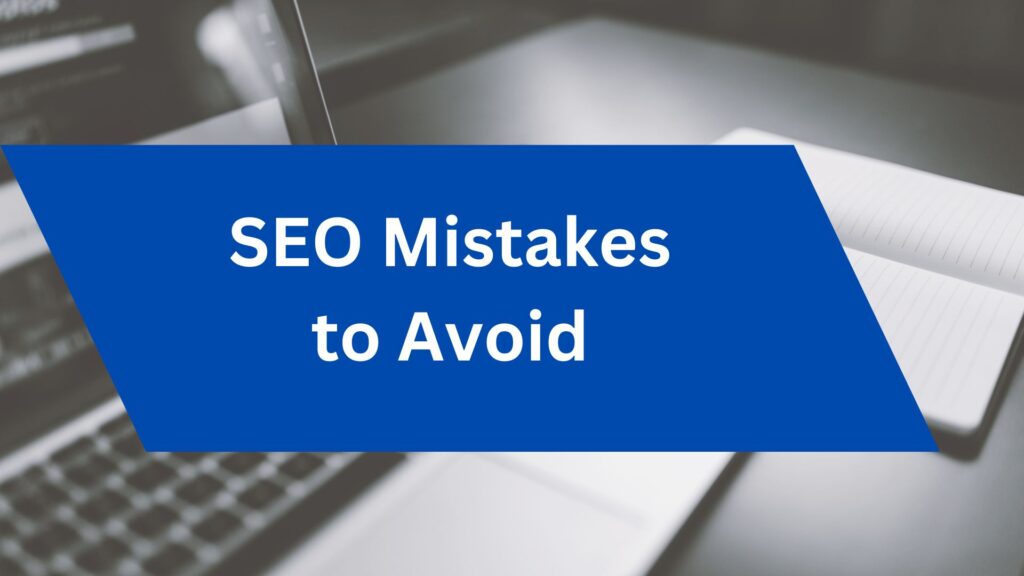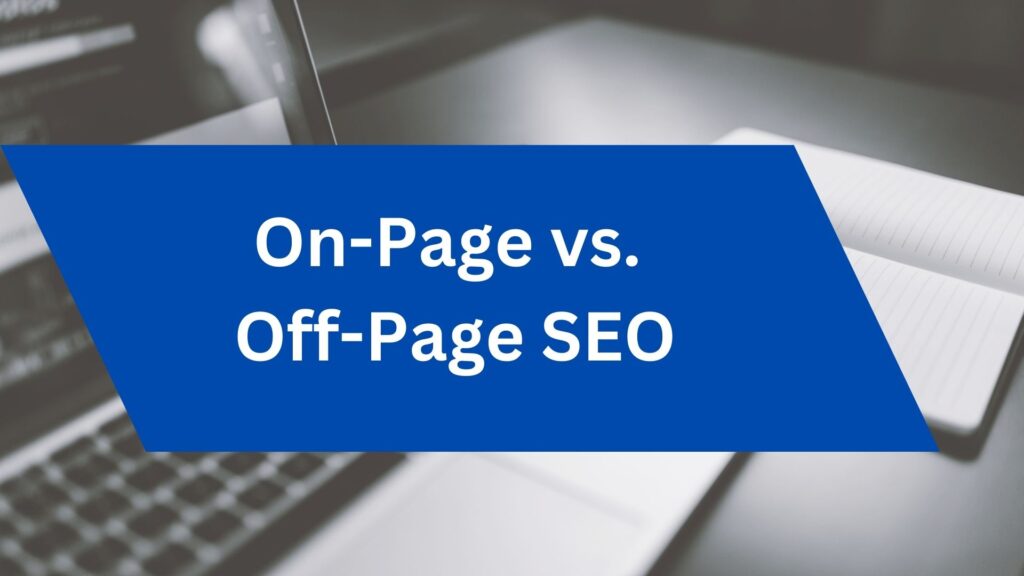SEO Failures to Avoid: Navigating the Pitfalls for Success
Search Engine Optimization (SEO) is a critical component of online marketing, but it’s a field rife with potential pitfalls. Avoiding common SEO mistakes can mean the difference between a successful online presence and a digital ghost town. Here are some key failures to steer clear of, informed by industry experts and recent research.
Underestimating the Power of Links:
A common misconception is that stellar content alone will suffice for high rankings. However, without a robust link-building strategy, even the best content may remain unseen[1]. Links are a vote of confidence from one site to another, a signal to search engines that your content is valuable and trustworthy.
When it comes to SEO, links are the backbone of your website’s authority and visibility. Yet, it’s surprisingly common for businesses to underestimate their significance. Here’s why you should give them the attention they deserve:
- Boost Search Engine Rankings: Search engines like Google consider backlinks as votes of confidence from other websites. The more quality backlinks you have, the higher your website is likely to rank in search results.
- Enhance Credibility: Backlinks from reputable websites act as endorsements for your content or products. They signal to both search engines and users that your website is trustworthy and valuable.
- Increase Referral Traffic: Backlinks are not just about SEO; they also drive direct traffic to your site. When users click on links from other websites, they land on yours, potentially increasing your audience and customer base.
- Build Authority in Your Niche: Acquiring backlinks from authoritative sources within your industry can establish your website as a go-to resource. This can further enhance your credibility and attract more links naturally over time.
So, how can you leverage the power of links effectively?
- Focus on Quality Over Quantity: Seek backlinks from relevant, high-quality websites with authority in your niche. A few authoritative links can have a more significant impact than many low-quality ones.
- Create Shareable Content: Produce valuable and engaging content that naturally attracts backlinks. Whether it’s insightful articles, informative infographics, or entertaining videos, compelling content is more likely to be linked to and shared.
- Engage in Outreach and Networking: Reach out to influencers, bloggers, and other website owners in your industry to promote your content and encourage them to link back to your site. Building relationships can lead to valuable link opportunities.
Never underestimate the power of links in SEO. They are essential for improving your search engine rankings, establishing credibility, and driving traffic to your website. Invest time and effort into acquiring quality backlinks.
Using Private Blog Networks (PBNs) Unwisely
PBNs can be a risky strategy. One SEO expert recounts a disastrous experience with cheap PBN links bought from a freelance website, which resulted in a significant drop in organic traffic and rankings for nearly a year[1]. The lesson? If you’re going to use PBNs, do so with caution and prioritize quality over cost.

Ignoring Technical SEO
Technical SEO lays the foundation for your site’s relationship with search engines. Common issues like duplicate content, under-optimized meta tags, and slow site speed can severely impact your rankings.
Establishing a strong foundation for your site’s relationship with search engines is crucial. It involves optimizing your website’s infrastructure to make it easier for search engines to crawl and index your content. Common issues, such as duplicate content, under-optimized meta tags, broken links, and slow site speed, can significantly impact your search engine rankings.
These problems can lead to poor user experiences, lower search visibility, and ultimately, reduced traffic. Utilizing tools like Semrush’s Site Audit or Web Site Auditor can help you identify and fix these technical SEO mistakes, ensuring your site performs optimally and maintains a competitive edge in search results.
Neglecting Search Intent
Understanding the intent behind searches is a pivotal aspect of crafting effective content. User intent refers to the reason behind a search query—whether the user is looking for information, seeking to make a purchase, or wanting to navigate to a particular site. By aligning your content with user intent, you increase the likelihood of satisfying users’ needs and, as a result, achieving better rankings on search engines. For instance, if a user is searching for “best smartphones 2024,” they likely want a comprehensive guide or comparison rather than a single product page. Delivering content that meets this expectation can lead to higher engagement, longer time on site, and more conversions.
On the other hand, neglecting user intent can result in content that misses the mark entirely. If your content doesn’t align with what users are searching for, they are more likely to bounce back to search results, signaling to search engines that your content isn’t relevant. This can hurt your rankings and diminish your site’s visibility. Therefore, a deep understanding of user intent is essential for creating content that resonates with your target audience, keeps them engaged, and ultimately drives desired actions. Focusing on user intent not only enhances the user experience but also boosts your SEO performance.
Forgetting Periodic SEO Audits
SEO is not a set-it-and-forget-it endeavor; it requires continuous effort and attention to maintain and improve your site’s performance. Regular SEO audits are essential for identifying and rectifying issues that could negatively impact your website’s visibility and ranking on search engines. These audits involve a comprehensive review of various elements, including technical SEO aspects, content quality, backlink profile, and user experience. By proactively addressing issues such as broken links, duplicate content, under-optimized meta tags, and slow page speeds, you can prevent these factors from causing significant drops in your site’s rankings.
Moreover, the digital landscape and search engine algorithms are constantly evolving. Regular audits help you stay up-to-date with the latest SEO best practices and algorithm changes, ensuring your site remains compliant and competitive. This proactive approach can save you from costly mistakes in the long run, such as penalties from search engines or loss of traffic due to outdated strategies. It also allows you to capitalize on new opportunities, such as emerging keywords or trends in user behavior. In essence, regular SEO audits are a crucial part of an effective SEO strategy, helping you maintain a strong online presence and achieve sustainable growth.
Overlooking Mobile Optimization
With the increasing prevalence of mobile search, having a mobile-friendly website is no longer optional; it’s a necessity. As more users access the internet via smartphones and tablets, ensuring that your site is optimized for mobile devices is crucial for providing a seamless user experience. Google’s mobile-first indexing underscores the importance of mobile optimization. This approach means that Google primarily uses the mobile version of a site for indexing and ranking purposes. In other words, the performance and usability of your mobile site are critical factors in determining your rankings, not just on mobile searches but on desktop searches as well.
A mobile-friendly website should have a responsive design that adapts to different screen sizes, fast loading times, and easy navigation. Elements like text, images, and buttons must be easily accessible and viewable on smaller screens. Neglecting mobile optimization can lead to higher bounce rates, lower engagement, and a significant drop in rankings. With Google’s emphasis on mobile-first indexing, failing to prioritize mobile usability can result in lost opportunities and decreased visibility in search results. Therefore, optimizing your website for mobile devices is essential for maintaining a strong online presence and ensuring that all users, regardless of their device, have a positive experience on your site.
Disregarding Local SEO
For businesses with a physical presence, local SEO is a critical component of an effective digital marketing strategy. It helps you connect with potential customers in your immediate geographic area, driving foot traffic and increasing sales. One of the most important steps in optimizing for local SEO is ensuring your business is listed accurately on Google My Business (GMB) and other relevant directories such as Yelp, Bing Places, and industry-specific sites. Your GMB profile should include up-to-date information such as your business name, address, phone number, hours of operation, and website URL. High-quality photos and customer reviews can also enhance your listing, making it more appealing to potential customers.
In addition to managing directory listings, creating localized content and using location-specific keywords are essential strategies. This means incorporating the names of your city, neighborhood, or even local landmarks into your website content, blog posts, and meta descriptions. By doing so, you can improve your chances of appearing in local search results when users search for services or products in your area. Moreover, optimizing for local SEO can help you appear in the “Local Pack” or “Map Pack” on Google, a prime piece of real estate that can significantly increase your visibility.
Overall, local SEO not only helps you reach customers nearby but also builds your brand’s credibility and trustworthiness within the community.
Failing to Measure and Analyze Results
Without tracking your SEO efforts, it’s impossible to gauge success or identify areas that need improvement. Analytics tools like Google Analytics, Google Search Console, and other SEO software provide valuable insights into your website’s performance. These tools allow you to monitor key metrics such as rankings, organic traffic, bounce rates, and conversions. By analyzing this data, you can determine which keywords are driving traffic, which pages are performing well, and where users are dropping off.
Regularly reviewing these metrics helps you understand the effectiveness of your SEO strategy. For instance, if you notice a decline in organic traffic, you can investigate potential issues, such as technical problems or content that no longer aligns with user intent. Conversely, identifying successful strategies allows you to double down on what works. By continuously tracking and analyzing your SEO efforts, you can make informed adjustments to optimize your strategy, ensuring that your site remains competitive and achieves its goals.
In Conclusion
SEO is a complex and ever-evolving field. By avoiding these common failures and staying informed about best practices, you can enhance your site’s visibility, drive traffic, and achieve your online marketing goals. Remember, SEO success is a marathon, not a sprint, and avoiding these pitfalls is key to a long-term winning strategy. For a deeper dive into SEO strategies and solutions, consider exploring the comprehensive guides provided by SEO experts.
Excited to boost your online presence? Drop us a line for top-notch SEO support. Check out our SEO offers below!


